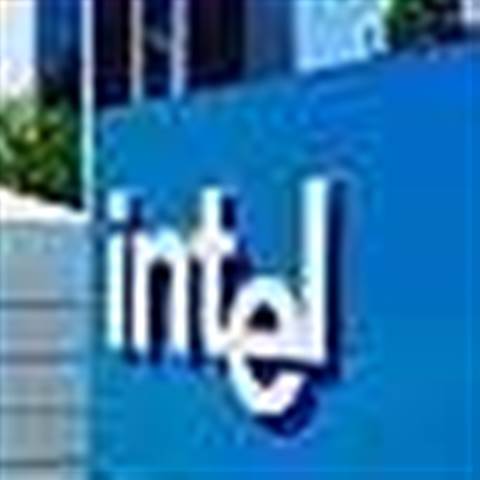Researchers from Intel and the University of California at Santa Barbara (UCSB) have unveiled a new hybrid silicon laser technology that will allow for faster communications inside a computer.
The researchers succeeded in mixing light-emitting indium phosphide inside a silicon chip through the use of an oxide layer that functions as a 'glass glue'. The indium phosphide is required to power the laser, making a chip's optical component. The new technology enables manufacturing using regular silicon production technologies, making for an inexpensive production process.
So-called photonic chips mark a step forward in the development of semiconductors by allowing them to use optical technology to communicate with other chips and components inside a computer. Replacing current electrical communications using copper wires, photonics offer increased bandwidth to power high speed chips of the future, UCSB professor John Bowers explained in a conference call.
"Electrical communications have a lot of dispersion and require a lot of power. That's a huge problem in the industry today. Optic technology (phonetics) gets around this."
The new hybrid technology that's mixing silicon with phosphide will allow for mass production of the chips, touted Mario Paniccia, director of Intel's Photonics Technology Lab.
"We are now able to start integrating photonics elements to build things that weren't available previously. This bring photonics to the mass market," said Paniccia.
Intel envisions hundreds of the hybrid silicon lasers being placed on a single chip, allowing for what Paniccia calls "a new era of high-performance computing applications."
"You now have the capability to converge communications and computing on one platform. That's extremely powerful," Paniccia said.
While the new process could allow for mass-production of phonetic devices, Intel cautioned that consumer products based on the technology are still years away.
Intel trumpets optical computing breakthrough
By
Shaun Nichols
on Sep 19, 2006 9:38AM

Got a news tip for our journalists? Share it with us anonymously here.
Partner Content

Shared Intelligence is the Real Competitive Edge Partners Enjoy with Crayon

MSPs with a robust data protection strategy will achieve market success
_(27).jpg&h=142&w=230&c=1&s=1)
Promoted Content
Why Renew IT Is Different: Where Science, AI and Sustainability Redefine IT Asset Disposition
.jpg&h=142&w=230&c=1&s=1)
New Microsoft CSP rules? Here’s how MSPs can stay ahead with Ingram Micro

Beyond the box: How Crayon Is Redefining Distribution for the Next Era







.jpg&w=100&c=1&s=0)








_(1).jpg&q=95&h=298&w=480&c=1&s=1)


